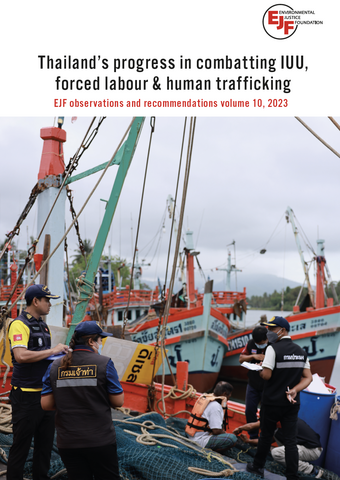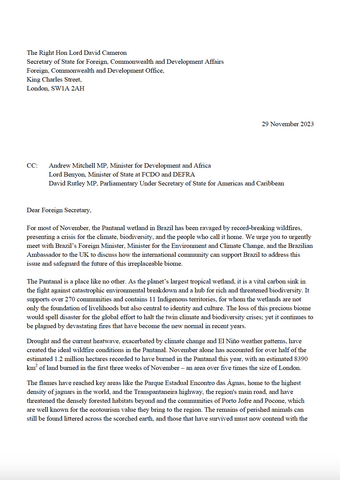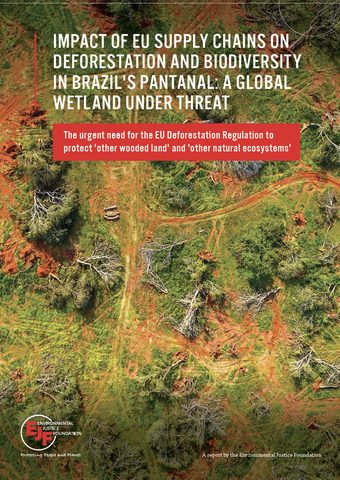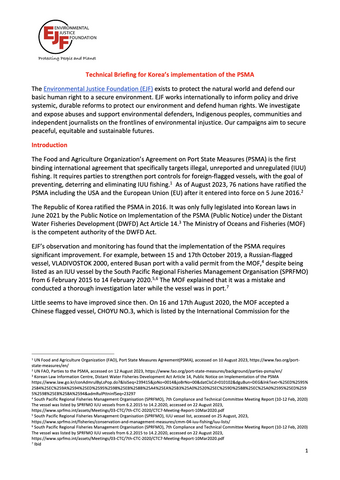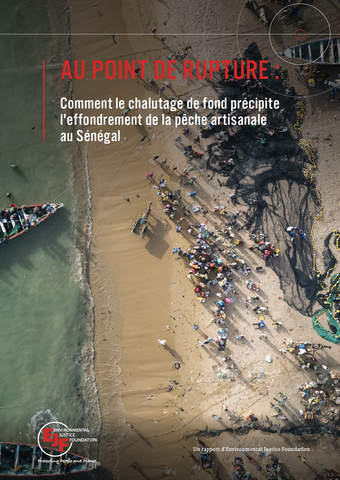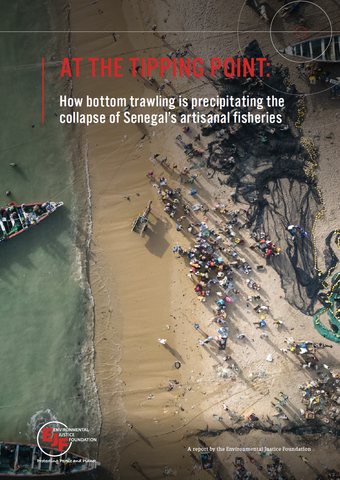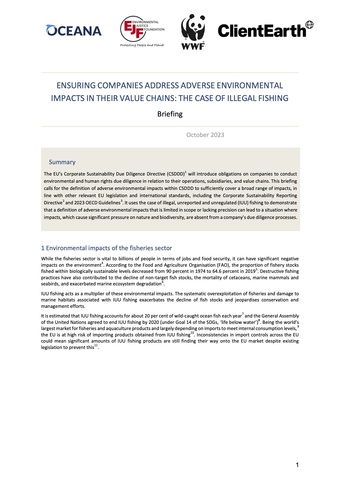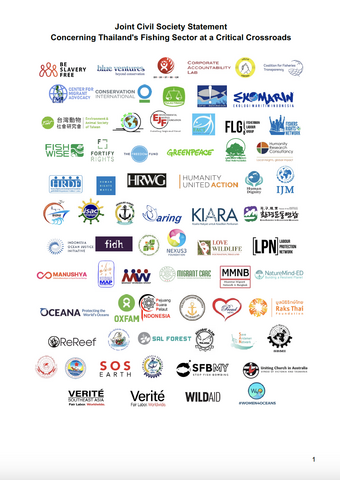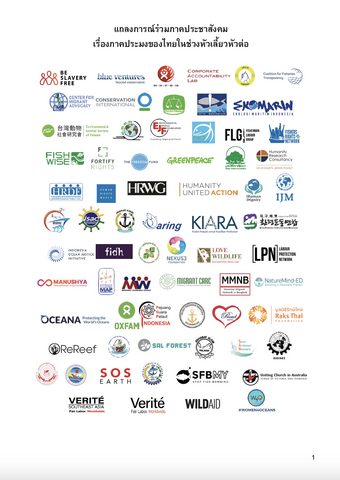Thailand’s progress in combatting IUU, forced labour & human trafficking: EJF observations and recommendations volume 10, 2023: Since February 2016, EJF has carried out multiple in-depth observations of the Royal Thai Government’s (RTG) initiatives aimed at tackling IUU fishing and human trafficking in the Thai fishing industry. This version is the 10th edition of this technical report. It represents the culmination of eight years worth of experience working directly with the Thai authorities as well as conducting independent field assessments of Thailand’s monitoring, control and surveillance mechanisms.
Open letter calling on Lord Cameron to support greater protections for the Pantanal wetland: With COP 28 upon us, it is critical that the international community addresses current threats to the Pantanal, in recognition of the central role it plays in our ability to avoid catastrophic climate breakdown. Alongside MPs, peers and other NGOs in the UK and Brazil, we are calling on Lord Cameron, the UK's Foreign Secretary, to begin this process.
The impact of EU supply chains on deforestation and biodiversity in Brazil's Pantanal: a global wetland under threat: This research explores the role played by EU cattle supply chains in driving the conversion of native vegetation to pasture in the Pantanal biome, with a view to informing the European Commission’s impact assessment of the expansion of the EU Regulation on deforestation-free products to include Other Wooded Land and Other Natural Ecosystems.
Technical Briefing for Korea’s implementation of the PSMA: The Food and Agriculture Organization’s Agreement on Port State Measures (PSMA) is the first binding international agreement that specifically targets illegal, unreported and unregulated (IUU) fishing. The Republic of Korea ratified the PSMA in 2016 – however, EJF’s observation and monitoring has found that the implementation of the PSMA requires significant improvement.
Lettre ouverte adressée au Ministre des Pêches et de l’Économie maritime (MPEM) du Sénégal - Problématique du chalutage de fond au Sénégal: Nous souhaitons attirer l'attention sur la crise des ressources halieutiques que traverse le Sénégal en raison notamment des pratiques de pêche destructrices de l'environnement, non durables et souvent illégales pratiquées par la flotte chalutière du pays.
Open-letter to Senegal's Minister of Fisheries and Maritime Economy (MPEM) - The issue of bottom trawling in Senegal: To draw attention to the crisis in Senegal’s fisheries sector caused by the environmentally destructive, unsustainable, and often illegal fishing practices of the country's trawler fleet. Immediate and strong action is needed to mitigate the environmental and socio-economic impacts of this fishing activity, to protect the livelihoods and food security of artisanal fishing communities.
Policy brief : The legal case for an effective GFCM compliance mechanism: The legal analysis by Professor Tullio Scovazzi and Professor Simone Vezzani of the GFCM’s legal framework, applicable international law, and existing compliance regimes of other Regional Fisheries Management Organisations (RFMOs) indicates that the reasons for this gap are of a political, not legal, nature.
At the tipping point: how bottom trawling is precipitating the collapse of Senegal’s artisanal fisheries: Artisanal fishing communities are the beating heart of Senegal’s fisheries sector, yet they are under threat. This report documents the environmental and socio-economic impacts of bottom trawling in Senegal.
Briefing: Schädliche Umweltauswirkungen im EU-Lieferkettengesetz – Fallbeispiel: IUU-Fischerei: Dieses Briefing zeigt anhand des Beispiels der illegalen, unregulierten und nicht gemeldeten (IUU-)Fischerei, dass eine weit gefasste Definition schädlicher Umweltauswirkungen im EU-Lieferkettengesetz dazu beitragen kann, besonders schädliche Auswirkungen der Fischerei auf die Umwelt zu verhindern und die Nachhaltigkeit in diesem Sektor zu fördern.
Joint Civil Society Statement Concerning Thailand's Fishing Sector at a Critical Crossroads: The Royal Thai Government’s progress to date in achieving a sustainable, legal, and ethical Thai fishing sector is commendable. However, rolling back reforms now would pose risks to Thailand and its fishing industry, especially when the global community is moving toward greater transparency and accountability in the seafood industry.
แถลงการณ ์ ร่วมภาคประชาสงัคม เรื7องภาคประมงของไทยในช่วงหวัเลีAยวหวัต่อ: ความก้าวหน้าของรัฐบาลไทยในการบรรลุภาคประมงไทยที่ยั่งยืน ถูกกฎหมาย และมีจริยธรรม เป็นสิ่งที่น่ายกย่อง อย่างไรก็ตาม การปฏิรูปถอยหลังในช่วงหัวเลี้ยวหัวต่อที่สำคัญนี้อาจก่อให้เกิดความเสี่ยงร้ายแรงต่อประเทศไทยและอุตสาหกรรมประมง โดยเฉพาะอย่างยิ่งเมื่อประชาคมโลกกำลังมุ่งสู่ความโปร่งใสและความรับผิดชอบในอุตสาหกรรมอาหารทะเลมากขึ้น
